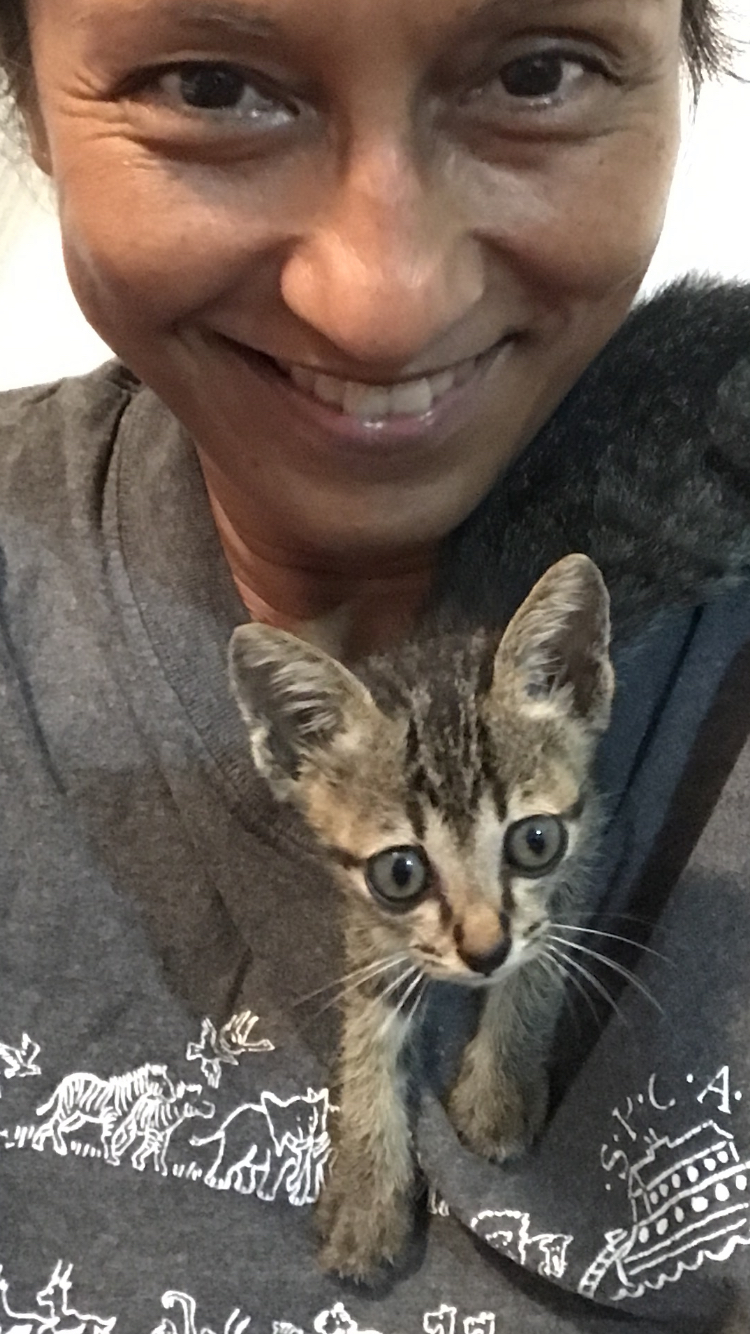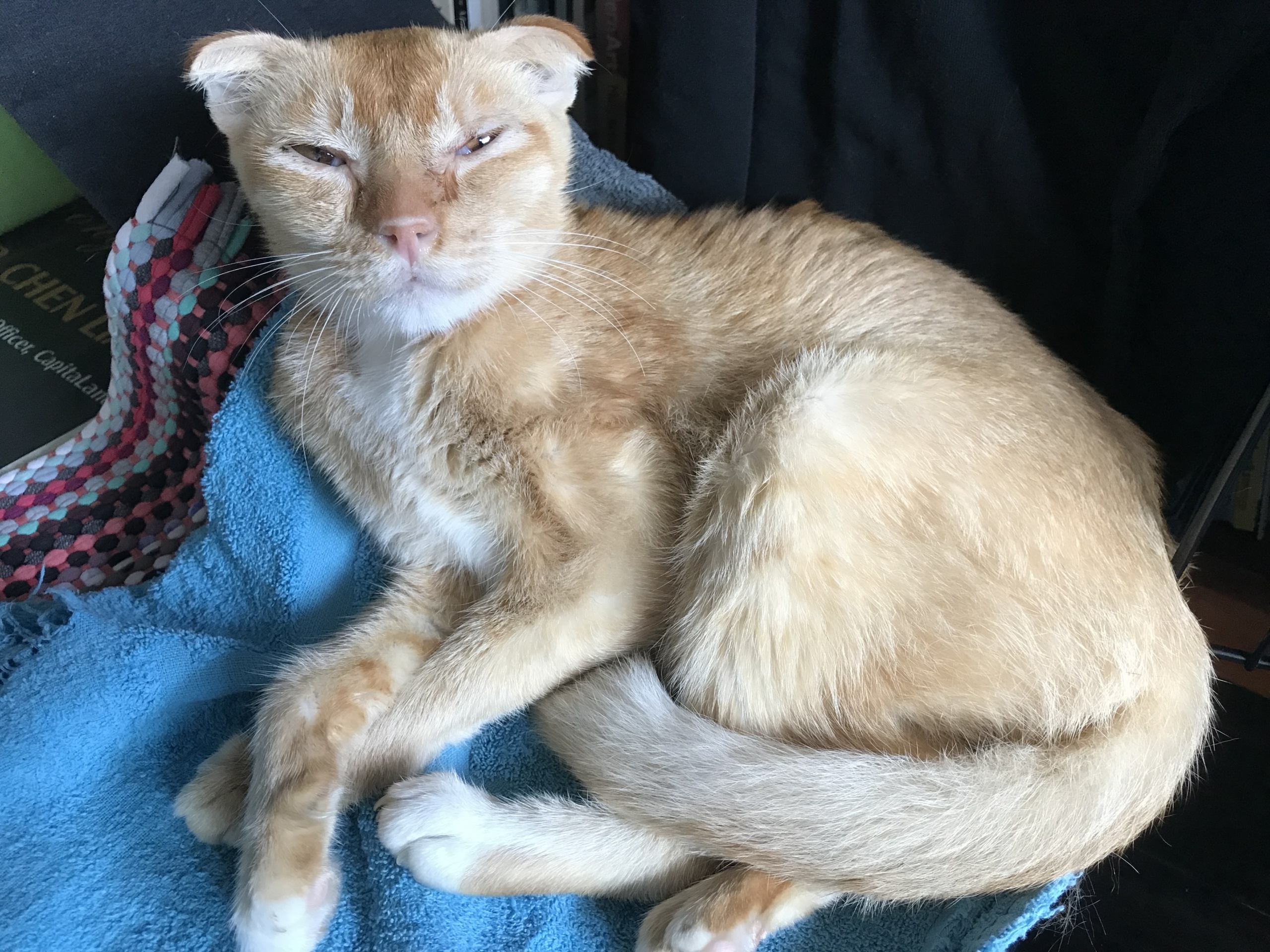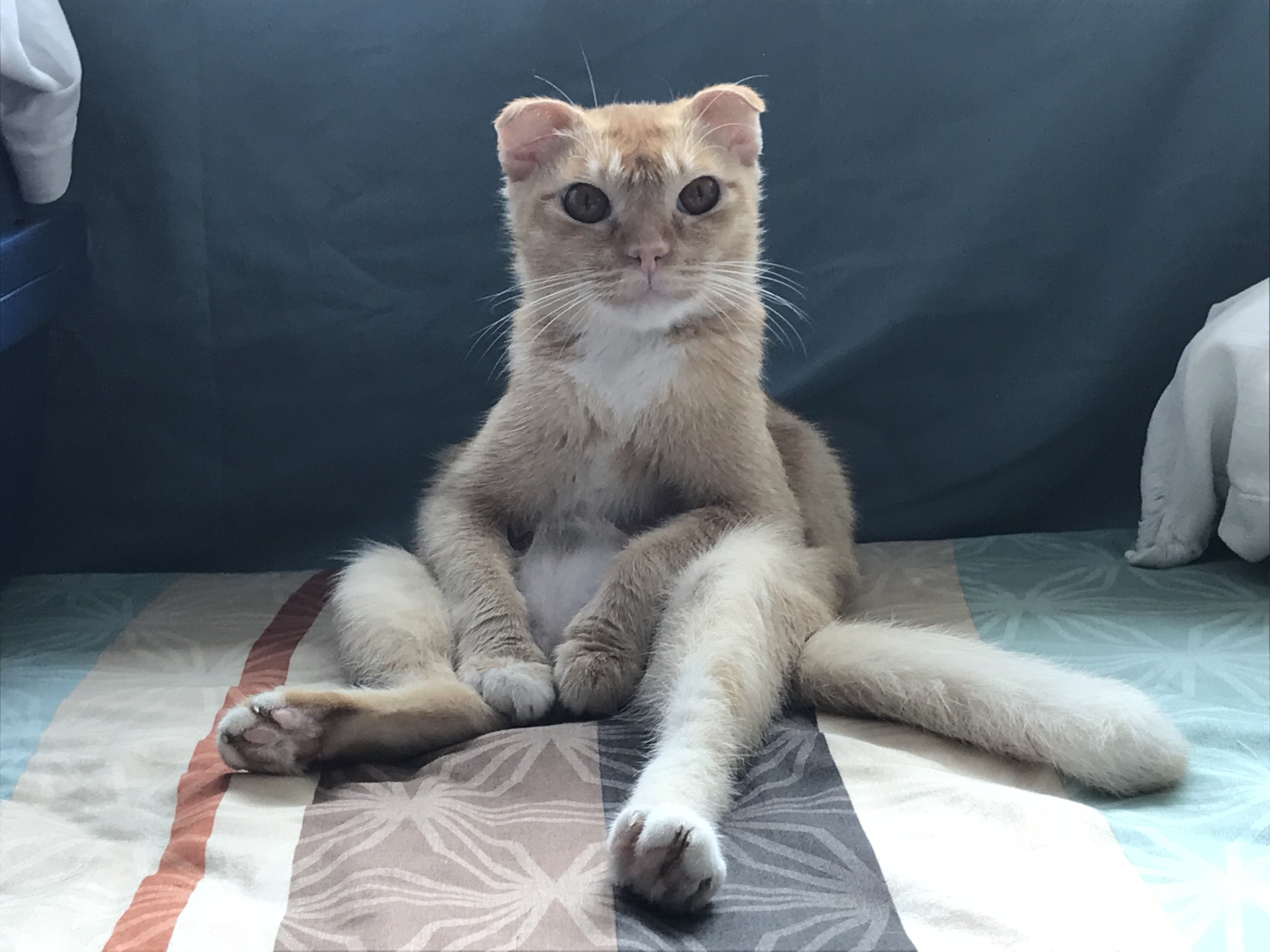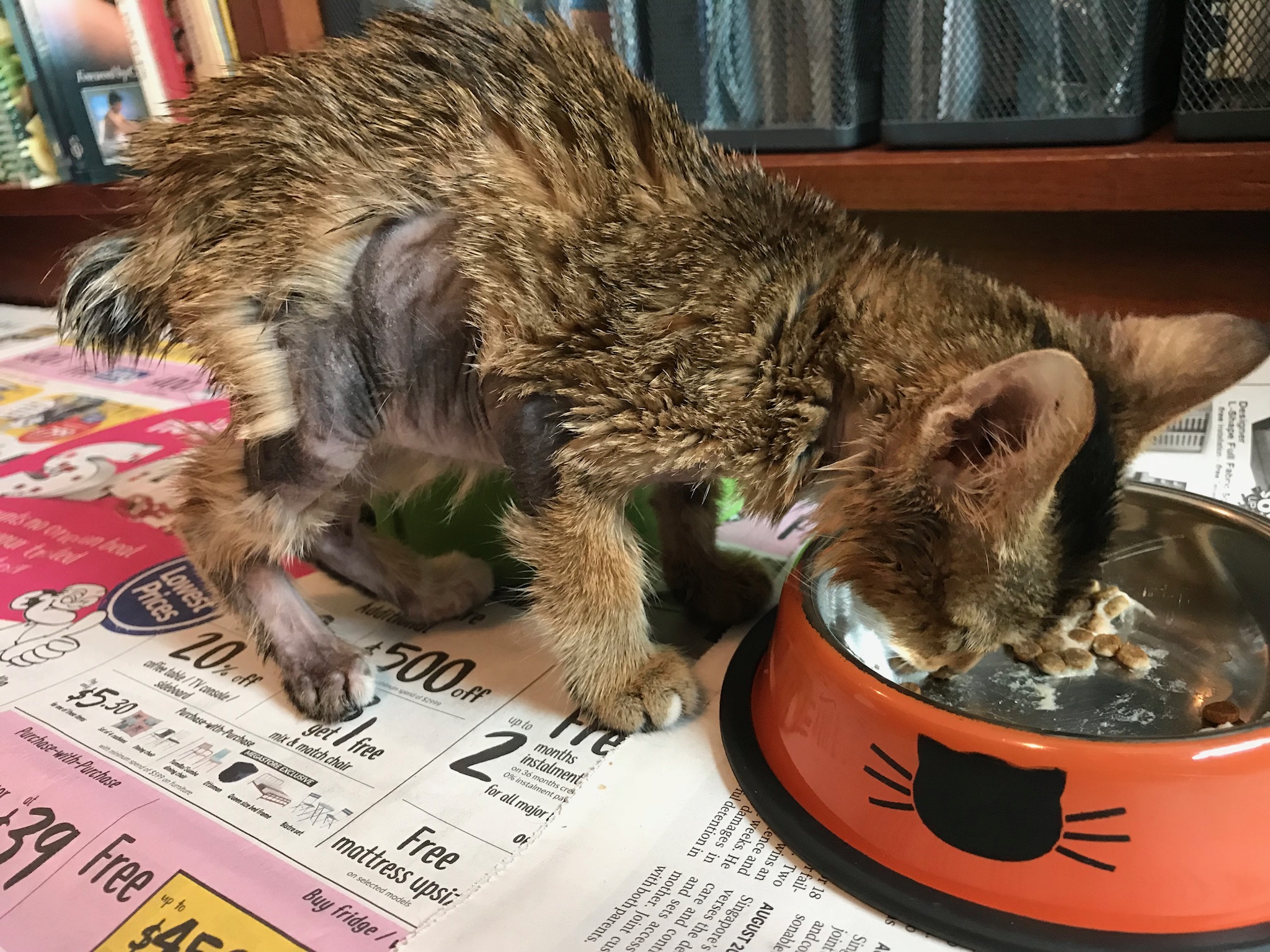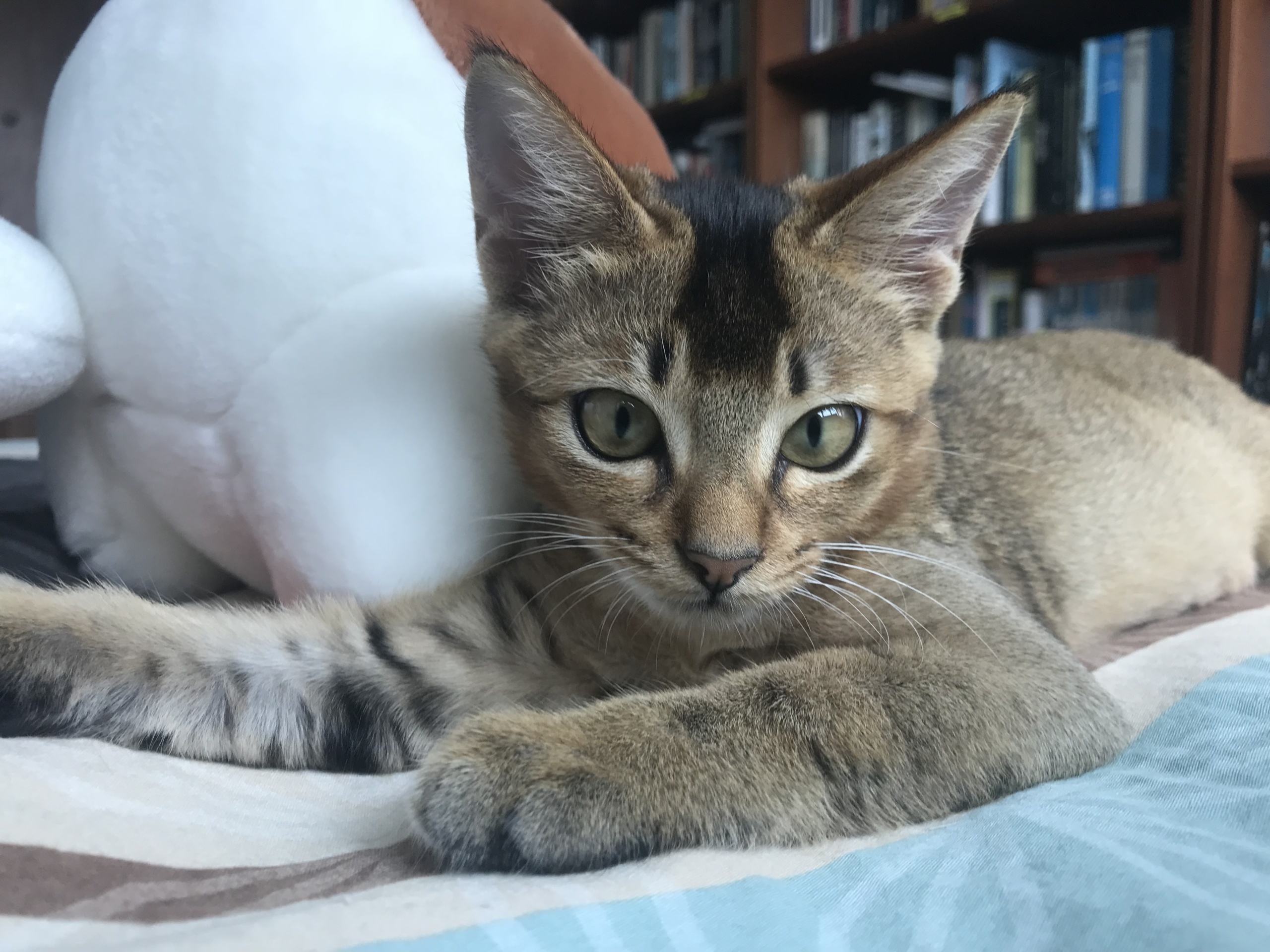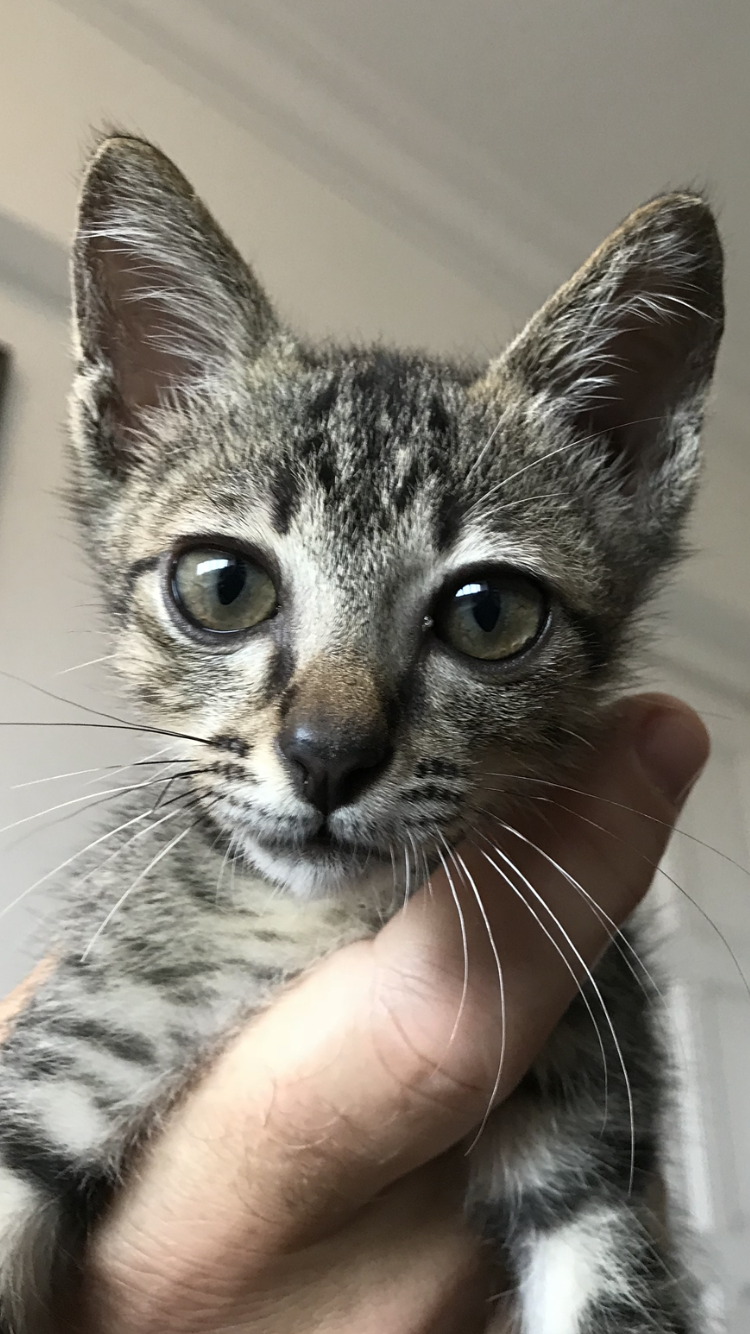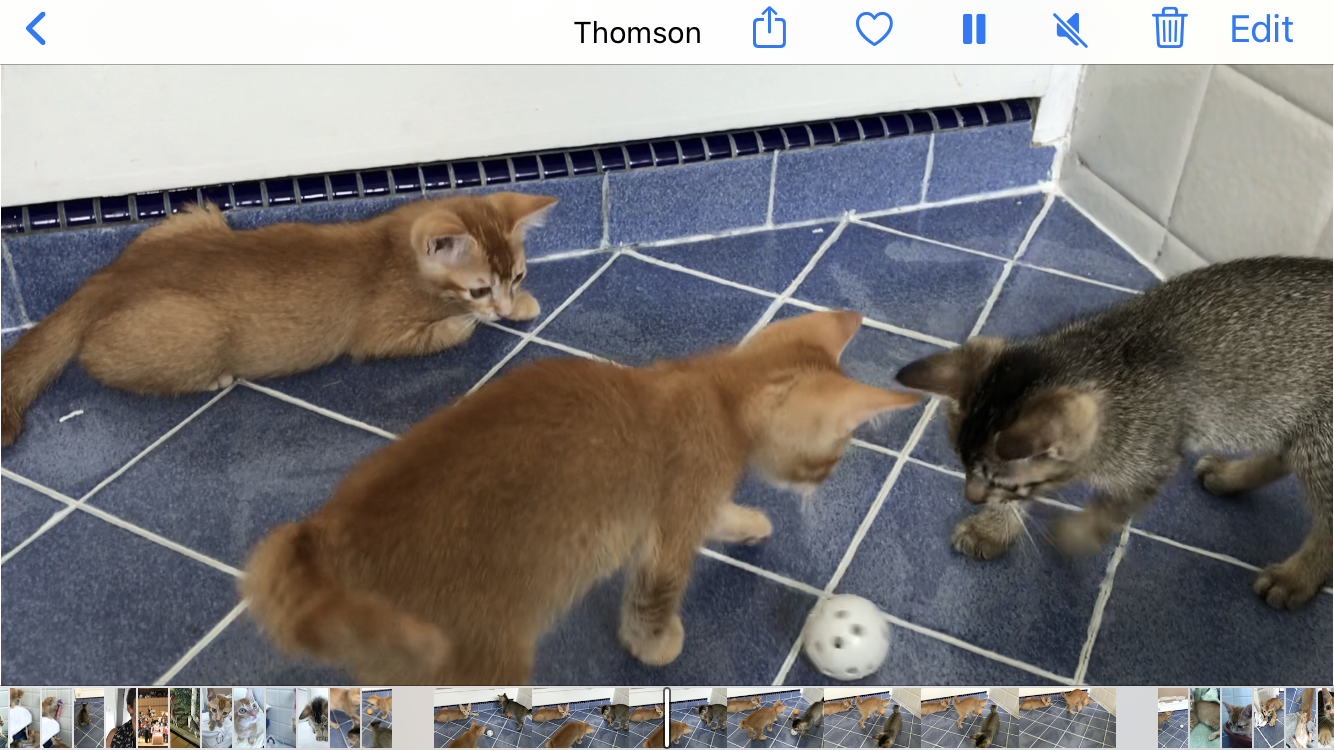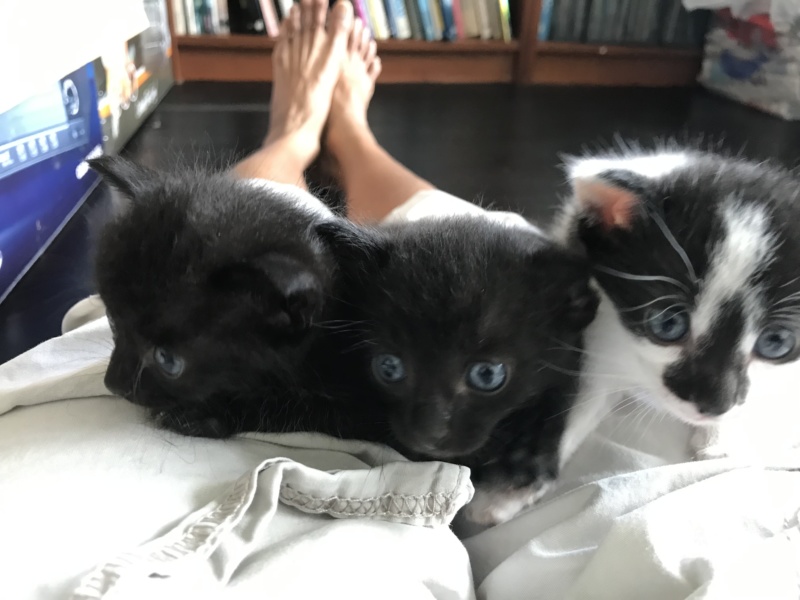Ninja was my first – a three-week-old tabby that needed to be weaned and made physically stronger before he could be vaccinated, and ready for adoption. People asked me “But how can you foster? It’ll be so hard to give him up!” Yes, absolutely. After 42 days of seeing to his every need, it was very painful surrendering Ninja for adoption. But I have learnt now how to care and let go.
The trigger
Quixote, the last of our three rescue cats, died a year after I retired. My husband, Peter, had suffered terrible allergies stoically for all the years we had them (he loved them too). We decided his health needed to recover before, or if, we adopted again.
So to get my fix for feline company, I started volunteering at the Society for the Prevention of Cruelty to Animals (SPCA). The cleaning, feeding, and caring for the cats there was the kind of dream job I wish I’d started earlier in life!
Then, a couple Peter knows needed to travel urgently and asked if we could look after their cat for two weeks. Peter said yes, and that was the informal beginning of our / my fostering vocation. Said cat’s staycation was a triumph – Peter subsequently agreed his health could start tolerating occasional felines in our home!
I quickly joined up the SPCA’s Foster Programme before Peter could change his mind. It’s now been four years and 13 fosters since!
Preparing materially and mentally
Having lived with three cats, I was prepared with all the necessary paraphernalia: safe physical space, food, litter, toys, bedding. The mental mindset however, was something new. Fostering is different to adopting. You know you will have to let go of them. Of the plethora of online resources, one stood out for me: Kitten Lady aka Hannah Shaw. Her practical and compassionate approach resonated. How do you deal with the inevitable emotional attachment? By reminding yourself constantly that giving up your foster means you can help another precious life that desperately needs your care. Sometimes such reminders are superfluous though: after getting Apricat, Ginger and Spice over their ‘flu, I immediately had my hands full with Manja, Yoda and Pie.
Dealing with sadness… and keeping fit!
Having spent weeks waking up to a daily routine based around a little creature that needs you, the morning after giving up a foster is a real jolt to the senses. I have found myself fighting off profound sadness at these times. My own antidote? No, not another immediate foster as you might think, because you do still miss the one you’ve cared for. Rather, it’s a twofold recovery process: first, accepting that sense of loss, and knowing that it will pass; and second, a daily exercise regime. Whether it’s yoga, aerobics or walking, I force myself to breathe and stretch, getting my heart rate up, and yes, sweating it out for at least 30 minutes – longer if I’m feeling more miserable. The physical workout helps lift me out of my funk, and has me looking forward to the next foster.
Learning something new with every single foster
I may be old but with each foster, I have learned new tricks. Leo, a three-year-old ginger Maine Coon with severe feline influenza had me researching and trying out treatments to ease his condition. Steaming up the bathroom worked wonders for his poor blocked nasal passages! With five-year-old Theo, I learnt how to administer feline enemas. Two-week-old triplets taught me the parenting skills (Peter and I don’t have kids) of three-hourly feeds throughout the night. My most recent foster kitten has me exploring the realms of feline cerebellar hypoplasia and hydrotherapy. All fresh and fascinating perspectives I would never otherwise have experienced.
There are life lessons too. At the risk of anthropomorphising them, the resilience of two fosters was especially inspiring. Caramel, rescued from a glue-trap, suffered the trauma of hair and skin loss. She was so brave. She fought the pain, filled out, rediscovered her spirit, and found a happy-ever-after forever home with a doting Japanese couple. One-year-old Cleo, sick with ‘flu, gave birth to three kittens, none of whom survived sadly. She endured the medication and loss, recovered her strength, and pulled herself up after just a few weeks. Seeing them go to happy homes makes such a difference.
Fostering cats and kittens was not a vocation I’d imagined when I retired. I am incredibly lucky to have an understanding spouse, who despite his allergies, fully supports me, and jumps in to help where he can. He once built a huge cardboard box play-pen for three lively foster kittens. The vets and administrators at the SPCA also have my gratitude for including me in their work, and for introducing me to that very first foster Ninja, who taught me how to love and let go.
